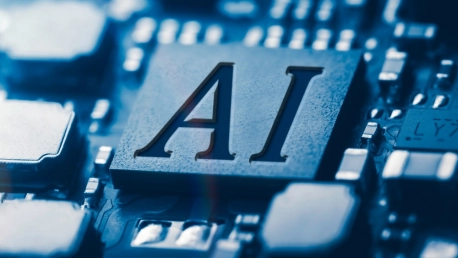Artificial intelligence (AI) and blockchain are two of the technologies with a significant impact on digital transformation, and will play a central role in Europe’s technological sovereignty. All major economies are seeking leadership in the development and deployment of AI and blockchain technologies, but the European Union, the United States and China are leading the global race—with the EU trailing the US and China. Discover why the EU is still far from fulfilling its aspirations of becoming competitive in the AI field.
Europe Has a Huge Investment Gap to Close
Europe must close an investment gap of up to €10 billion a year, which is hampering the development and deployment of AI and blockchain technologies in the EU—according to a European Investment Bank (EIB) report titled “Artificial Intelligence, Blockchain and the Future of Europe”.
“Companies and governments in Europe are substantially underinvesting in AI and blockchain compared to other leading regions, and it has become clear that the European Union struggles to translate its scientific excellence into business application and economic success,” the report states.
According to the EIB report, Europe is doing well in research, but comes up short in terms of funding. The EU currently has approximately 40,000 AI researchers, the US roughly 30,000, and China approximately 20,000. Between 2013 and 2017, the EU contributed to 30% of global AI-related scientific publications, but in terms of funding, Europe is lagging. The EU accounts for only 7% of annual capital investment in both technologies (€1.75 billion), while the US and China together account for 80% (€25 billion).
The report also showed that the largest number of small and medium-sized enterprises (SMEs) involved in AI and blockchain were in the US (2 995), followed by China (1 418). The EU was then third in this classification with 1 232 SMEs involved in AI and blockchain. The largest number of companies involved in this field came from Germany, Austria, and France.
What Are the Main Bottlenecks?
The EIB report identifies several factors contributing to this investment gap for the EU.
First of all, European venture capital investors have a low appetite for higher-risk investments, which is always the case with investments in such technologies (deep-tech). Compared to the United States, the European Union has fewer venture capitalists specializing in AI and blockchain.
Although Europe’s internal market is comparable in size to that of the United States and China, the absence of the EU’s digital single market hinders the expansion of AI and blockchain-focused SMEs, and limits their ability to compete in the global market. The European venture capital ecosystem is more willing to invest in these technologies at the seed level (early stage), i.e. smaller amounts, than in later rounds of funding. In the US it is just the opposite, the report states.
EU Says It Needs to Act as a Global Standard-Setter
The European Parliament’s Special Committee on Artificial Intelligence in a Digital Age (AIDA) has recently adopted its final recommendations.
The text warns that the EU has fallen behind in the global race for tech leadership. The AIDA also points out that the EU needs to act as a global standard-setter in AI.
“Our future global competitiveness in the digital field depends on the rules we put in place today. These rules need to be in line with our values: democracy, rule of law, fundamental rights, and respect for the rules-based international order. This is paramount, as the struggle between authoritarianism and democracy is becoming more and more acute—and unfortunately more deadly, as we have seen with Russia’s unjustified invasion of Ukraine”, AIDA Committee Chair Dragoş Tudorache said.
In an attempt to stay competitive, the European Commission has taken some steps to support these technologies in recent years.
For example, the Horizon 2020 program has allocated €1.5 billion to AI between 2018 and 2020. The Digital Europe Program (DEP), part of the 2021–2027 Multiannual Financial Framework, will allocate €2.5 billion for investment in the use of AI in businesses and public administrations.
A dedicated thematic investment fund for AI and Blockchain was developed through a partnership between the European Commission and the European Investment Fund, to which the European Commission contributed €100 million.
The European Commission has made additional resources available for the new Multiannual Financial Framework, and the post-pandemic NextGenerationEU program—in particular the recovery and resilience plan—earmarked for strategic technologies.
Conclusion
Whether we’re aware of it or not, AI is everywhere, and nearly every critical sector or industry relies on it to perform specific tasks. Can Europe stay in the global AI and blockchain race? It can, but only if it’s willing to spend more, faster.









